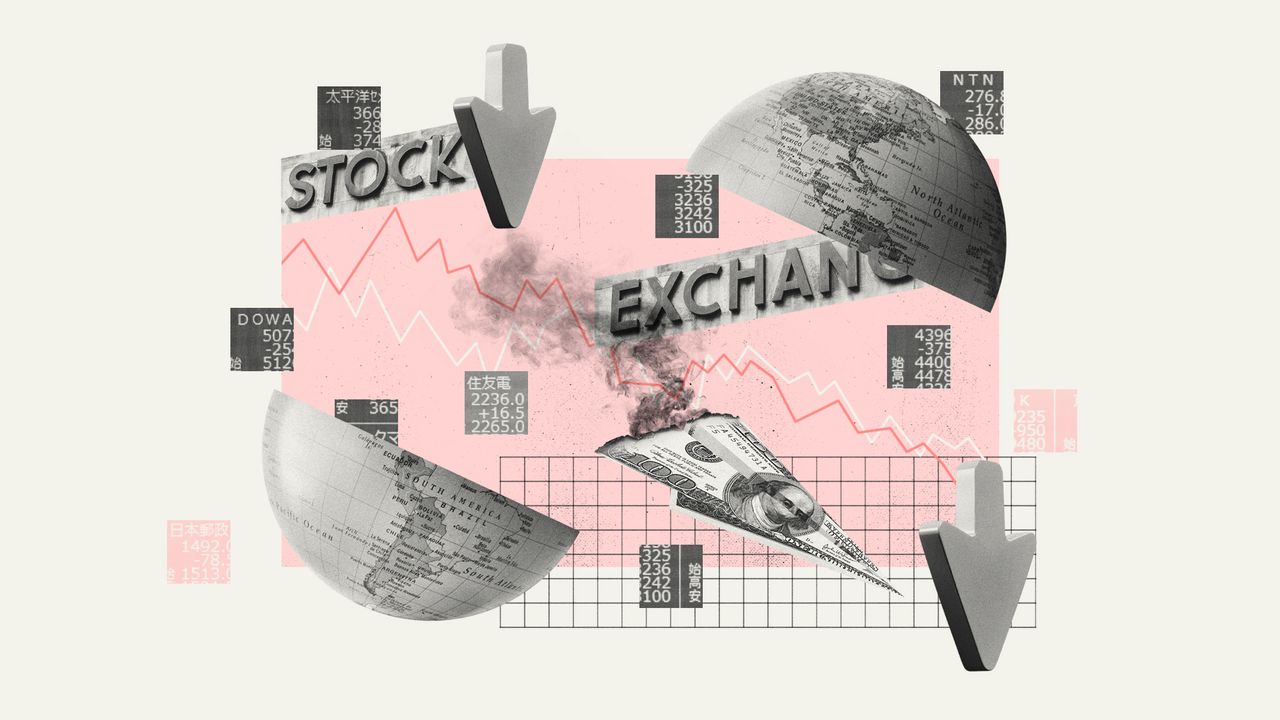- Posted On:2024-08-05 12:08
-
605 Views
Why are global stock markets plunging?
Global stock markets have tumbled this week in a scare first sparked by fears the US economy is heading for a recession.
New data released at the end of last week suggested the US economy has significantly slowed, and the days following have seen a "global rout" in stock markets that has fuelled fears of a full-blown crash, said The Telegraph.
With European markets opening "in the red" and the FTSE 100 experiencing its "worst drop in more than a year", no market seemed immune from the spiral, the newspaper added. It is thought the global sell-off has "wiped trillions of dollars off of global markets", said the Daily Express. The effect appears most severe in Japan's Nikkei index, which suffered "its worst day since 1987 and hitting a seven-month low".
Global market drops can be attributed to the latest US jobs report showing unemployment "rising to its highest level in years", said The New York Times. The figures stoked fears the "economy was cooling", prompting a wave of "investor anxiety".
Investors were already on a knife-edge thanks to the US Federal Reserve's "waiting game" on lowering its benchmark interest rate, said Bloomberg's John Authers. "To err is human", but the Fed might have held off "too long", creating an atmosphere of "hair-trigger reactions to every shred of news".
A "painful combination of factors", such as a potential recession in the US and the current geopolitical tensions, have damaged the "global risk appetite of investors", said the Financial Times' Leo Lewis. Donald Trump was quick to blame the slide on the Democrats, calling Joe Biden "sound asleep" on the economy and claiming Kamala Harris "doesn't have a clue".
Despite the fears being rooted in the US economic outlook, it is Japan that has seemingly borne the brunt of the ongoing crisis. The painful irony is that the Nikkei has "recently been experiencing a renaissance", said Lewis, meaning it is "unusually attractive to take profits from it right now because the gains this year have been so good".
Not everyone is buying into the idea of a worst-case scenario. "We don't see a recession [in the US] even though the stock market today is behaving like it anticipates a recession," Nancy Vanden Houten, lead economist at Oxford Economics, told Al Jazeera. There are "things going on beneath the surface" of the seemingly glum data, she said – the higher unemployment rate, for instance, is partly due to new immigrants entering the workforce, and "that is a good thing".
What next?
With a global sell-off now in full swing, the prospects of swift interest rate cuts by the US Federal Reserve at its next meeting on 17 September "loom large", said Reuters.
While Britain's FTSE 100 has undoubtedly been caught up in the ongoing "global mayhem", it could be in with a chance of "skirting the absolute worst of the declines". As sectors within the index often offer a glut of "solid, predictable dividends", investors will be turning to the FTSE to ensure safety, Bloomberg added.
Meanwhile, it will be a "moment of truth" for Japan's stock market, said Reuters' Una Galan, as this week's "slump" is likely to finally reveal "how much substance is beneath the froth" in the country.
Problems are unlikely to end soon. In fact, "we likely have a summer of volatility ahead of us", said Chris Beauchamp, chief market analyst at online trading platform IG, in The Mirror, as "such moves don't stop in a single day".

